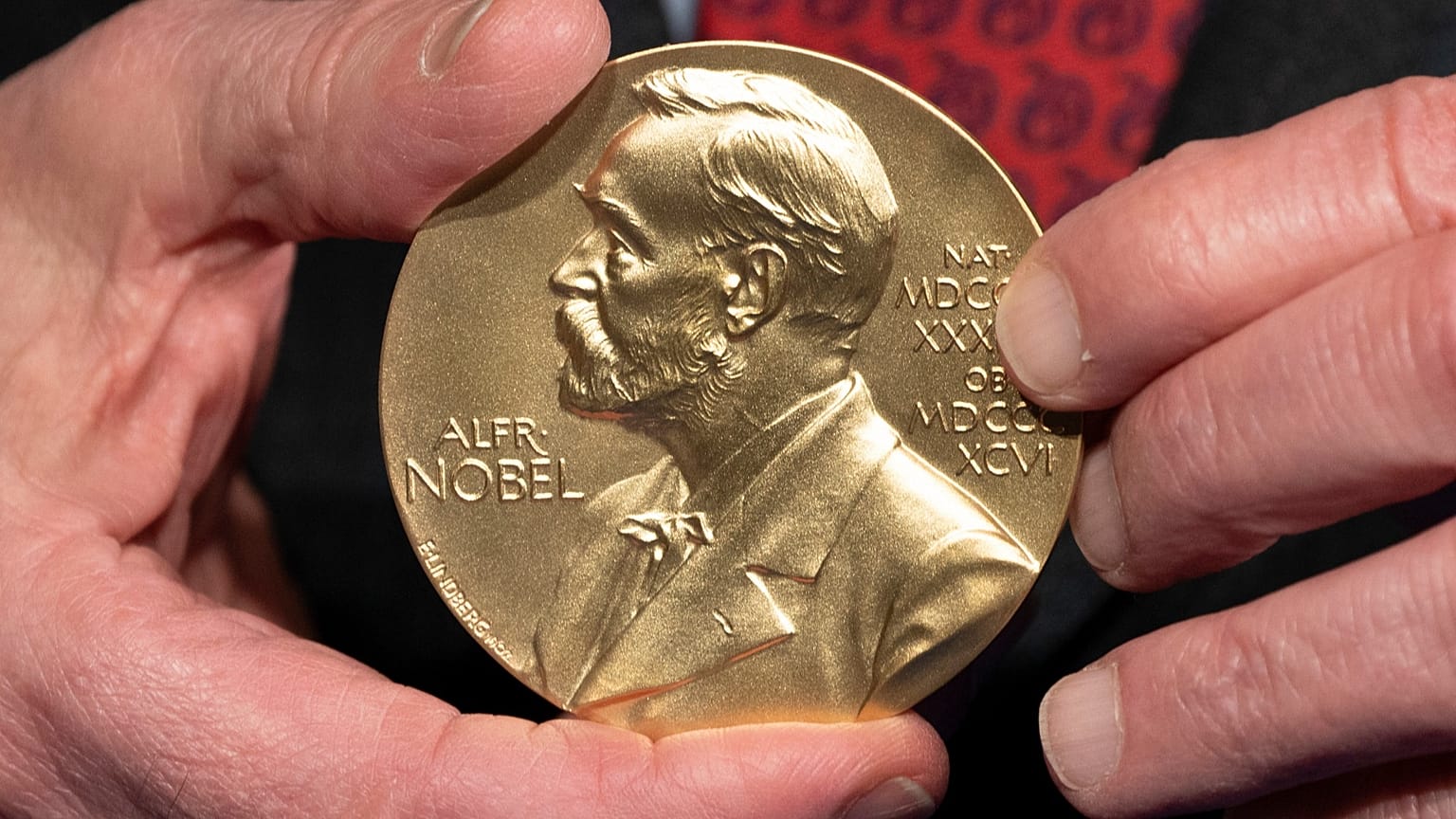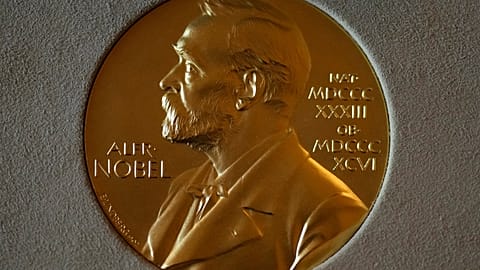The chemistry award is the third 2025 Nobel Prize to be announced this week.
Three scientists won the Nobel Prize in Chemistry for creating a new type of molecular structure that has been used to extract carbon dioxide from the air and separate pollutants from water.
 ADVERTISEMENT
ADVERTISEMENT
 ADVERTISEMENT
ADVERTISEMENT
The winners are Susumu Kitagawa from Kyoto University in Japan, Richard Robson from the University of Melbourne in Australia, and Omar M. Yaghi from the University of California, Berkeley, in the United States.
Their constructions, known as metal-organic frameworks (MOFs), consist of metal nodes and polydentate organic ligands, or molecules that can form multiple bonds, which serve as links between the nodes.
They contain “large cavities in which molecules can flow in and out,” according to the Nobel Prize.
“The small amount of material is like Hermione’s handbag in Harry Potter” in that it is a small compartment that can store a lot, said Heiner Linke, chair of the Nobel Committee for Chemistry.
In the decades since the trio began their work, chemists have designed tens of thousands of MOFs. They can be used to separate so-called forever chemicals from water, break down tiny traces of pharmaceutical drugs in the environment, and extract carbon dioxide from the air, according to the Nobel Prize.
On a call with journalists during the announcement, Kitagawa said he was “deeply honoured and delighted” by the award.
He said his “dream” is to pull elements from the air and use them to help power renewable energy sources, saying this is “quite important for our society and also our planet”.
Previous Nobel Prizes in Chemistry
From 1901 to 2024, 116 Nobel Prizes were awarded in chemistry. Eight of the 197 chemistry winners have been women, including Marie Curie in 1911.
Last year’s chemistry award was split between David Baker, a biochemist at the University of Washington in the United States, and Demis Hassabis and John Jumper from Google DeepMind, the tech giant’s artificial intelligence (AI) unit.
Hassabis and Jumper created AI models that can predict protein structures, while Baker pioneered a method to design new proteins that can be used in medicines, vaccines, nanomaterials, and tiny sensors.
The rest of the 2025 Nobel Prizes, awarded for advancements in literature and economics and toward peace, will be awarded in the coming days. The awards for medicine and physics were announced earlier this week.
The Nobel laureates will receive their prizes at an awards ceremony in Sweden in December.


















